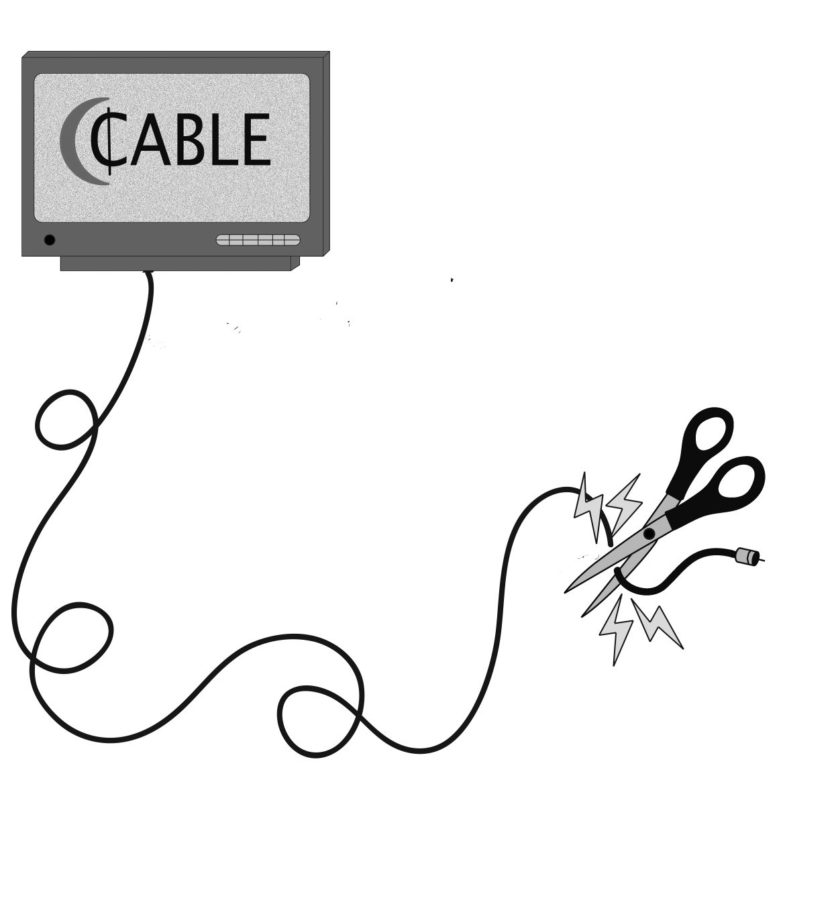Cable: a dying breed amongst TV watchers
October 30, 2014
A college student with a Netflix or Hulu subscription is about as unique as a college student with a strong opinion on student debt.
“Either you have your own account, or you have a friend or a family member who’s willing to share with you,” said senior communication studies major Alexis Jones. “It’s just so incredibly common now, especially for college students.”
Streaming sites like Netflix and Hulu have taken a notable chunk out of traditional television subscription based models. In 2013, 6.5 percent of households in the U.S. had cut the cord to their cable TV according to Experian Marketing Services.
The mentality behind the move from cable to exclusively internet streaming comes from a want to save money and be able to enjoy quality content at a viewer’s personal pace.
“I love binge-watching TV shows on Netflix,” said sophomore sociology major Kensie Logan, who exclusively uses streaming for her entertainment. “You just can’t do that with regular TV, so [cable] is just not worth the money for me.”
Logan’s concern with the high annual cost of cable is understandable, as a financial information firm SNL Kagan reported average cable TV bills have increased by 97 percent over the past 14 years.
But cost is not the only thing to challenge television providers like Comcast. Additionally, streaming sites provide college students with the invaluable resources of personalized content and immediacy.
Students who have cut their cable subscriptions or are considering doing so have a new reason to rejoice. On Oct. 16, network HBO announced that it will be offering its programming to basic cable and internet-exclusive customers starting in 2015.
HBO, home to the famed TV adaption of “Game of Thrones,” has long been a premium network only available for viewing through an extra subscription offered to cable subscribers.
Now that the programming will be available to anyone with a high-speed internet connection as a standalone service, some are expecting rates of cable subscriptions to drop even further.
A Mashable.com poll, “Would you cancel cable if you could get HBO on its own?,” echoes that response with nearly 70 percent of readers responding that they would do so.
Current HBO subscribers pay an extra $15 monthly charge to their cable bills. Time Warner has yet to announce how much the separate streaming service will cost, or if users will have access to HBO’s entire library of content.
But some Sacramento State students already seem on-board with the idea.
“It’s exciting, and I’m definitely going to look into it when it starts,” said freshman economics major Aaron Soares, who often watches HBO’s “Game of Thrones” at a friend’s house. “It can be a bit annoying because he has cable and I don’t. I like watching with my friends, but sometimes I’d rather just watch by myself.”
Whether or not the cord cutters are right in calling for the death of cable television subscriptions, this trend toward lower-cost, instantly available and personalized entertainment will continue to shake content provides in the near future.





























































































































